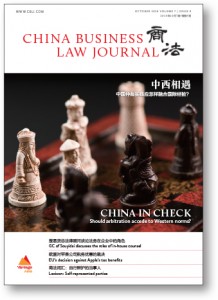Most people long for a smooth and harmonious life, but conflicts and divergences are more the reality. The key is to address the problems, rather than run away from them.

The growing permeation of international experience has led many to question whether mainland China’s arbitration services can catch up, and keep up, with international norms. China in check finds the answers are not so black and white. International practices certainly have many mature aspects – such as ad hoc arbitration, a clear concept about the arbitration seat and more dedication to case management – that China can find useful. But simple copy-and-paste emulation, with no regard for China’s own legal traditions, may be unwise.
Frictions are inevitable in interactions between two different worlds, but with an open, practical and pro-arbitration mindset, surely mainland China can find the right balance between local needs and international norms.
Resolving the conflict between legal compliance and business innovation is an important mission for in-house counsel in emerging sectors. Melding spear and shield features Li Yikun, the general counsel of Souyidai, an internet lending platform, who shares insights on that conundrum. She says corporate counsel need to play two somewhat contradictory roles – they are expected to support the spearhead business and product development teams in frontline profit-making, while on the other hand they must shield the company from harm and put the brakes on anything breaking the regulatory red line. Li also shares her years of experience in training a company’s internal staff.
The EU’s state aid case against Apple is a recent headline-making tug-of-war on the stage of global investment. At the centre of the tussle are the EU, Ireland and the US, but the implications may ripple outwards to taxpayers investing into EU members from other parts of the world.
A big bite of Apple points out that although companies based in China may not benefit from EU country tax rulings in the same way as US-based multinationals, many Chinese enterprises try to lower their foreign tax costs often by seeking tax rulings similar to the ones at issue in the Apple case. The EU’s decision is hence worth the attention of Chinese investors.





















